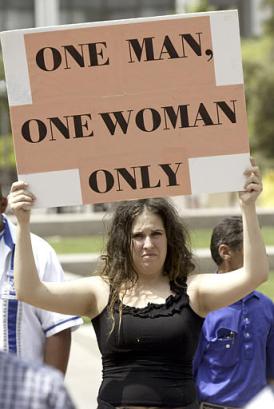Andrew Anthony: “‘Do you think [Nick Broomfield] wants to be on camera?’ [Michael Moore] puts the question back to me. ‘Do you think he looks like he’s enjoying it?'”
Back in 1996, when Michael Moore came through San Francisco on a book tour for Downsize This, I walked up to the man at A Clean, Well-Lighted Place for Books, mentioning that I had started a comprehensive FAQ that began with obsessive riffling through microfilm when I was an undergraduate. “Hey, Kath, it’s the FAQ guy,” he said to his wife, not directly addressing me but presumably hoping that I would be impressed by this aside to his wife. At one point, in the middle of his lecture, Bay TV cameras came in and Moore lit up, becoming the consummate showman and acting as if the crowd who assembled there to buy his book was simply a fill-in audience for a television show. Outside the bookstore, I asked for an interview, figuring that Moore would, by way of his purported “working class” roots, be interested in talking with the little guy. He grilled me at length over what media outlet I was with. It was the kind of treatment I expected from Bruce Willis or John Travolta — not a man running around from coast to coast to get in touch with the great American heartland, going out of his way to expose corporate wrongdoings. I named off a few sites I had been writing for that would probably take it.
“How many hits?” he asked.
When it became clear to Moore that I wasn’t the New York Times, he handed me his business card, suggesting that I could contact the general number at his office for any questions I might have, and then pretty much ignored my existence. As I recall, he didn’t even shake my hand or thank me. I figured that since my FAQ wasn’t a completely slavish portryal of the man, having pointed out the Harlan Jacobson Film Comment controversy, Moore didn’t really care to talk with me. When I saw Moore’s 1997 documentary The Big One (a film, along with Canadian Bacon, curiously omitted from most discussions of Moore’s ouevre), I was struck by how much the film served to boost Moore’s ego. The Big One prioritized Moore’s standup routines over the struggling working class people who saw Moore as a Will Rogers type for our time.
This is, by no means, a complete condemnation of the man’s work. I thought Bowling for Columbine functioned as an effective polemic (its quibbling with the facts aside), and I certainly look forward to seeing Fahrenheit 9/11, now that it’s won the Palme d’Or.
But Andrew Anthony’s revelation is nothing new. Moore has a long history of being a self-serving whiner. There was, for example, the infamous San Diego “arrest,” in which Moore’s unwllingness to leave a building prevented janitors from going home, hardly reflecting the sympathies of a “working-class” hero, and Moore claimed that it was a freedom of speech issue. Another fact that goes unmentioned is that, when Moore made the switch from TV Nation to The Awful Truth, Moore stopped using FAIR to fact-check his information.
One should never confuse the man with his work, but the question brought up in the Anthony profile is whether Moore, now with his grand win in France undisputedly the most prominent figure for the left, has a certain responsibility to maintain a more dignified profile for the Left. Will rewarding Moore with the Palme d’Or serve to amp up his ego to heights beyond Limbaugh? Then again, if Moore’s legions of followers are so blindly unquestioning, drawing the exact same arguments when rattling off their bluster to potential converts, what makes Moore any different from Limbaugh?
If Fahrenheit 9/11‘s chief goal is to get Bush out of office, then progressives have a definite interest in seeing this film get distributed. It’s impossible to comment upon the film until one has seen it, but the real question that needs to be asked is whether this film’s audience is a built-in demographic or something that extends beyond it. Like Ray Kroc pilfering the McDonald brothers’ ideas about how to serve food in the interests of cash, Moore may be the consummate businessman, marketing to a select niche, taking other people’s ideas and adding them to the company repertoire without credit. This might explain why Moore would be so wililng to trash his peers (in this case, Nick Broomfield) by suggesting that Broomfield doesn’t enjoy being in front of camera (a ridiculous assumption for anyone who has experienced Broomfield’s self-deprecatory approach and watched his willingness to wander down seedy avenues).
 However, I must confess that I was more impressed with the opening act,
However, I must confess that I was more impressed with the opening act, 